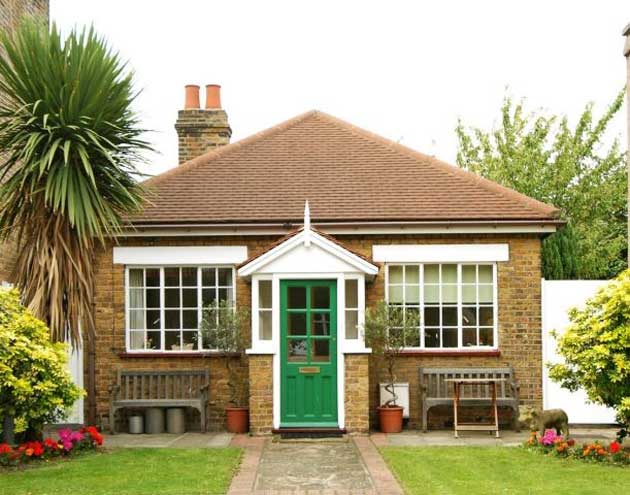The rise – and fall – of the bungalow
Britain's favourite type of house is under threat from changes to planning rules. Graham Norwood looks back at more than 80 years of one-level wonders

Your support helps us to tell the story
From reproductive rights to climate change to Big Tech, The Independent is on the ground when the story is developing. Whether it's investigating the financials of Elon Musk's pro-Trump PAC or producing our latest documentary, 'The A Word', which shines a light on the American women fighting for reproductive rights, we know how important it is to parse out the facts from the messaging.
At such a critical moment in US history, we need reporters on the ground. Your donation allows us to keep sending journalists to speak to both sides of the story.
The Independent is trusted by Americans across the entire political spectrum. And unlike many other quality news outlets, we choose not to lock Americans out of our reporting and analysis with paywalls. We believe quality journalism should be available to everyone, paid for by those who can afford it.
Your support makes all the difference.Guess the identity of Britain's favourite home. A quaint thatched cottage, a classic Victorian terraced house? A fashionable London mews or a rural barn conversion? No: the bungalow is our No 1 property to own.
A survey by the Alliance & Leicester bank shows 29 per cent of people describe the bungalow as their ideal home, dwarfing support for flats and houses of any kind. Research by the Halifax shows the bungalow as the "happiest" home in Britain, too; it was rated by its occupants at an average of 8.15 out of 10 for features to make homeowners contented such as security, comfort, design and ease of use.
This has been a spectacular rise to popularity for the single-storey home which began life as a hut built by 19th-century Indian peasants and was then given a colonial spruce-up during the Raj to house British officers. It came to Britain in the 1920s and then after the Second World War, when it was considered a quality but low-cost temporary housing, superior to the "pre-fabs".
Yet now the British bungalow is under threat as planning guidelines and land prices mean fewer are being built, and many older ones are being knocked down. The very reasons that bungalows are popular – spacious living, single-level access and large grounds giving privacy – are the same reasons they are now disappearing.
Only 300 bungalows were built in Britain in 2007, out of 180,000 new homes. Government guidelines say at least 30 homes must be built on every hectare of developed land, therefore favouring dense houses or blocks of flats over single-storey bungalows sitting on the same footprint.
Self-build organisations, advising individuals who want to get on the housing ladder by constructing their own homes, say bungalows used to be a self-build favourite but now few planning authorities give consent to such a small home.
Indeed, the glut of property development that swept across Britain in the past decade – until this year – has accelerated the demise of the bungalow. In ultra-expensive areas such as Sandbanks, the exclusive Dorset coastal area, a large bungalow was sold in 2005 for a record £3m.
"I've seen some of the biggest topping £2m within commuting distance of London. They have a higher price per square foot than houses or flats, and their privacy puts a premium on their prices. I've often been commissioned to find one for someone moving out of the capital with high disposable income," says Norman Speakes, a relocation agent in the Cotswolds. But sales have ground to a halt.
Steve Bates of Torbay Estates & Bungalows in Devon, says 50 per cent of his bungalow business is from semi- or fully-retired incomers from the Midlands and London. "My office rang 200 on our waiting list. Without exception they were all waiting for a bungalow but unable to even get an offer on their existing property," he says. Bates believes the bungalow market is even more constipated than other housing sectors because sellers are often older, without financial or work pressures, so do not have to move until they get the price they have decide to wait for.
The Peak Valley Housing Association near Manchester found no shortage of demand when it had 14 of them built last year: "Our waiting list was inundated. The high demand for bungalows demonstrates a clear need for this type of housing," says PVHA spokesman Phil Corris.
But it is arguable whether bungalows will have to yield to the ever-increasing demand for land space. If so, it will be a sad end to living on the level.
Join our commenting forum
Join thought-provoking conversations, follow other Independent readers and see their replies
Comments